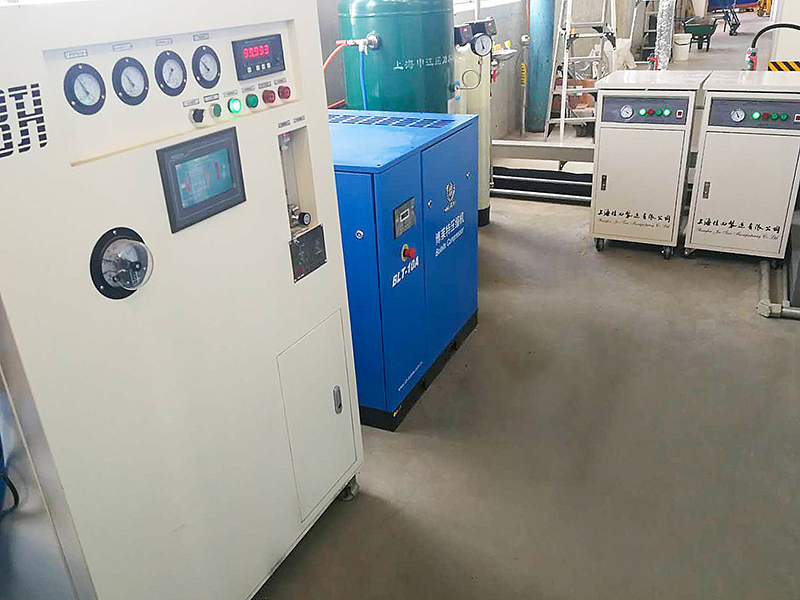In the field of analytical chemistry, the gas chromatograph (GC) stands as a powerful tool that enables scientists and researchers to separate and analyze complex mixtures of volatile compounds. This sophisticated instrument plays a pivotal role in various industries, including pharmaceuticals, environmental analysis, forensics, and petrochemicals. In this article, we will explore the fundamentals and capabilities of gas chromatography, shedding light on its importance in achieving analytical precision and driving advancements in scientific research.
Gas chromatography operates on the principle of separating and analyzing components of a gaseous sample. It involves the injection of the sample into a column, which acts as a separation medium. The column is packed with a stationary phase, and a carrier gas is used to transport the sample through the column. As the sample interacts with the stationary phase, different compounds separate based on their unique chemical properties and interaction with the stationary phase, allowing for their identification and quantification.

High Separation Efficiency:
Gas chromatography offers exceptional separation efficiency, allowing for the resolution of complex mixtures into individual components. The stationary phase within the column is carefully selected to provide selectivity and separation based on factors such as polarity, size, and chemical interactions. This high separation efficiency enables scientists to detect and analyze even trace amounts of target compounds within a complex matrix.
Wide Range of Applications:
The versatility of gas chromatography is evident in its wide range of applications across various industries. In the pharmaceutical industry, GC is used for drug development, quality control, and analysis of impurities. Environmental analysis relies on GC to detect pollutants, pesticides, and volatile organic compounds in air, water, and soil samples. In forensics, GC aids in identifying and analyzing substances found at crime scenes. Additionally, GC plays a crucial role in petrochemical analysis, flavor and fragrance profiling, food and beverage quality control, and many other fields where accurate compound identification and quantification are essential.
Detection and Quantification:
Gas chromatography is often coupled with various detectors to measure and quantify the separated compounds. Commonly used detectors include flame ionization detectors (FID), thermal conductivity detectors (TCD), electron capture detectors (ECD), and mass spectrometry (MS). These detectors provide different levels of sensitivity and selectivity, allowing scientists to detect and quantify compounds at low concentrations and to analyze complex mixtures with high accuracy.
Advancements in Gas Chromatography:
The field of gas chromatography has witnessed significant advancements over the years, driven by technological innovations and research breakthroughs. Modern gas chromatographs feature enhanced capabilities such as fast analysis times, improved resolution, and higher sensitivity. Additionally, the development of multidimensional gas chromatography (GCxGC) has revolutionized compound separation and identification, allowing for even more comprehensive analysis of complex samples.
Future Directions and Challenges:
As analytical demands continue to evolve, the gas chromatography field faces ongoing challenges and opportunities. Researchers are exploring advancements in column technology, stationary phase design, and detector sensitivity to further improve separation efficiency and expand the range of analytes that can be analyzed. Additionally, efforts are being made to develop portable and miniaturized gas chromatographs for on-site analysis and field applications.
Gas chromatography plays a vital role in analytical chemistry, providing scientists and researchers with a powerful tool to separate, identify, and quantify compounds in complex mixtures. Its high separation efficiency, wide range of applications, and continuous technological advancements make it an indispensable instrument in various industries. With its ability to achieve analytical precision and generate valuable data, gas chromatography continues to drive scientific discoveries and innovations, paving the way for advancements in medicine, environmental protection, forensic science
